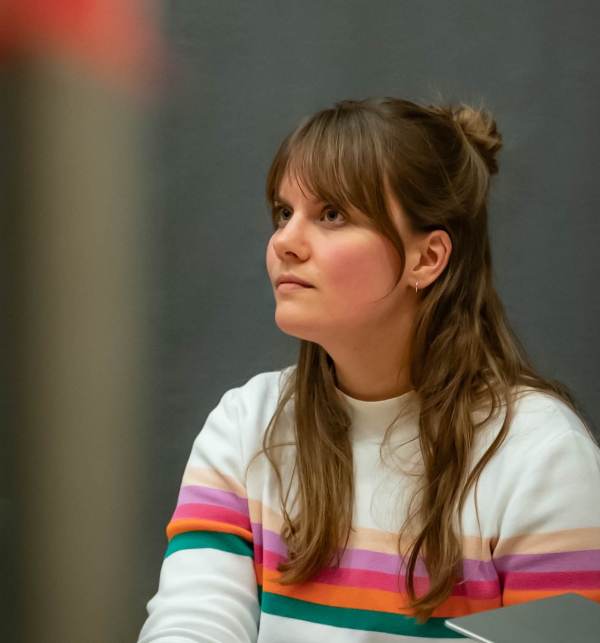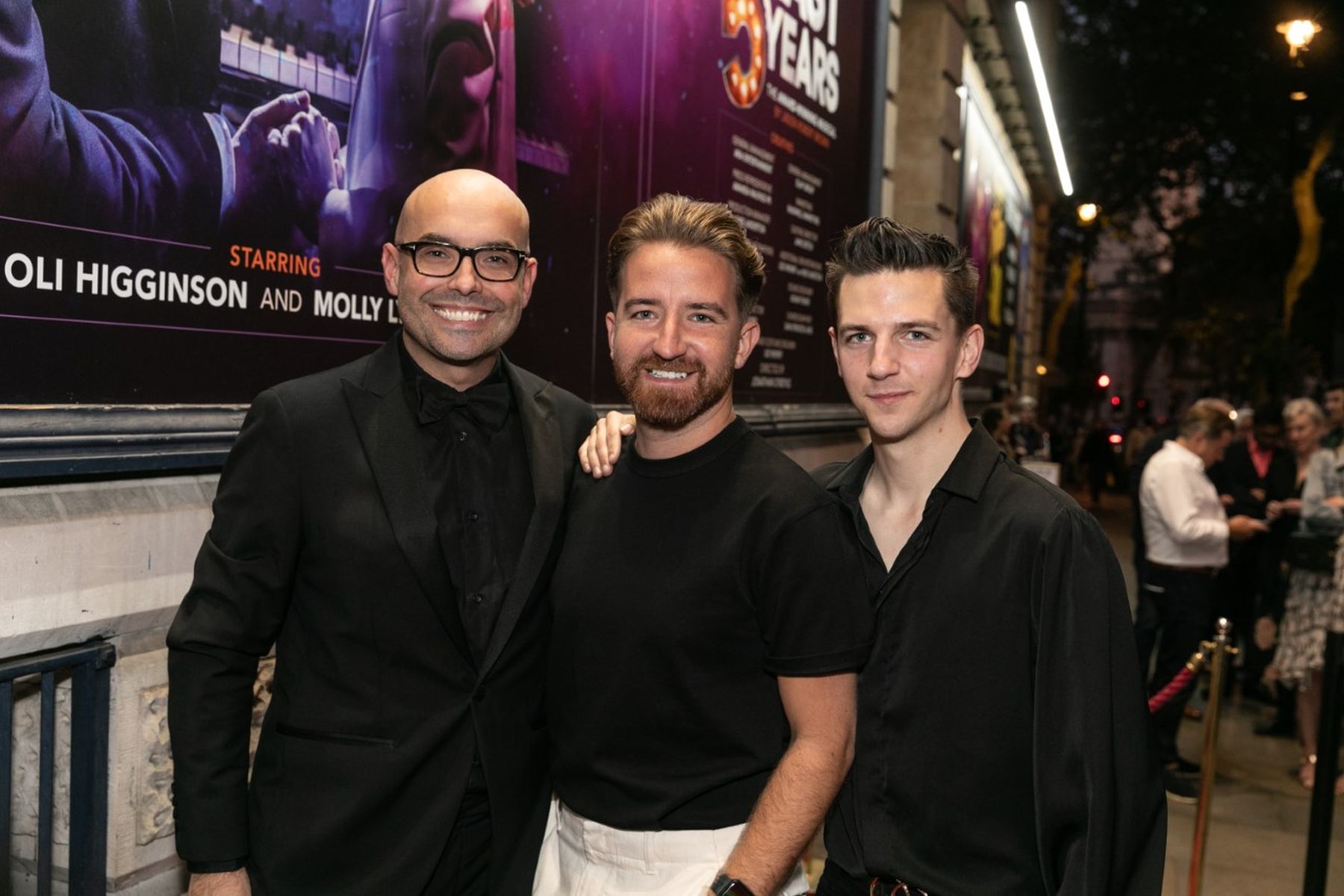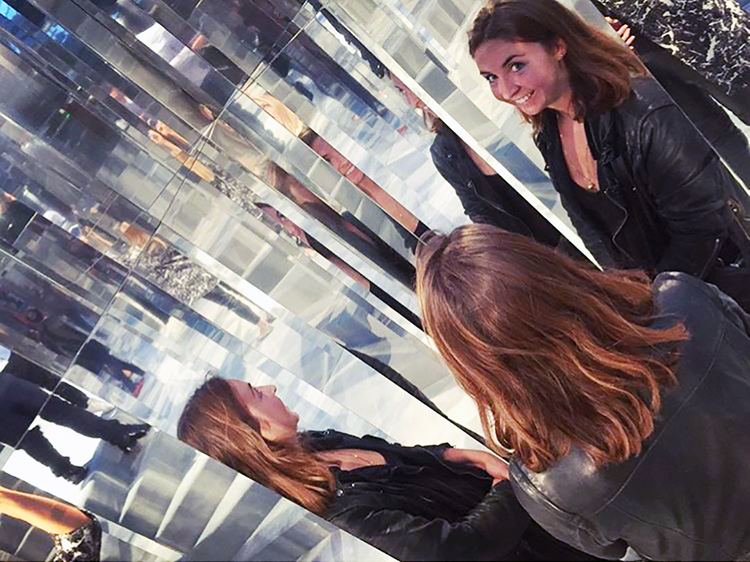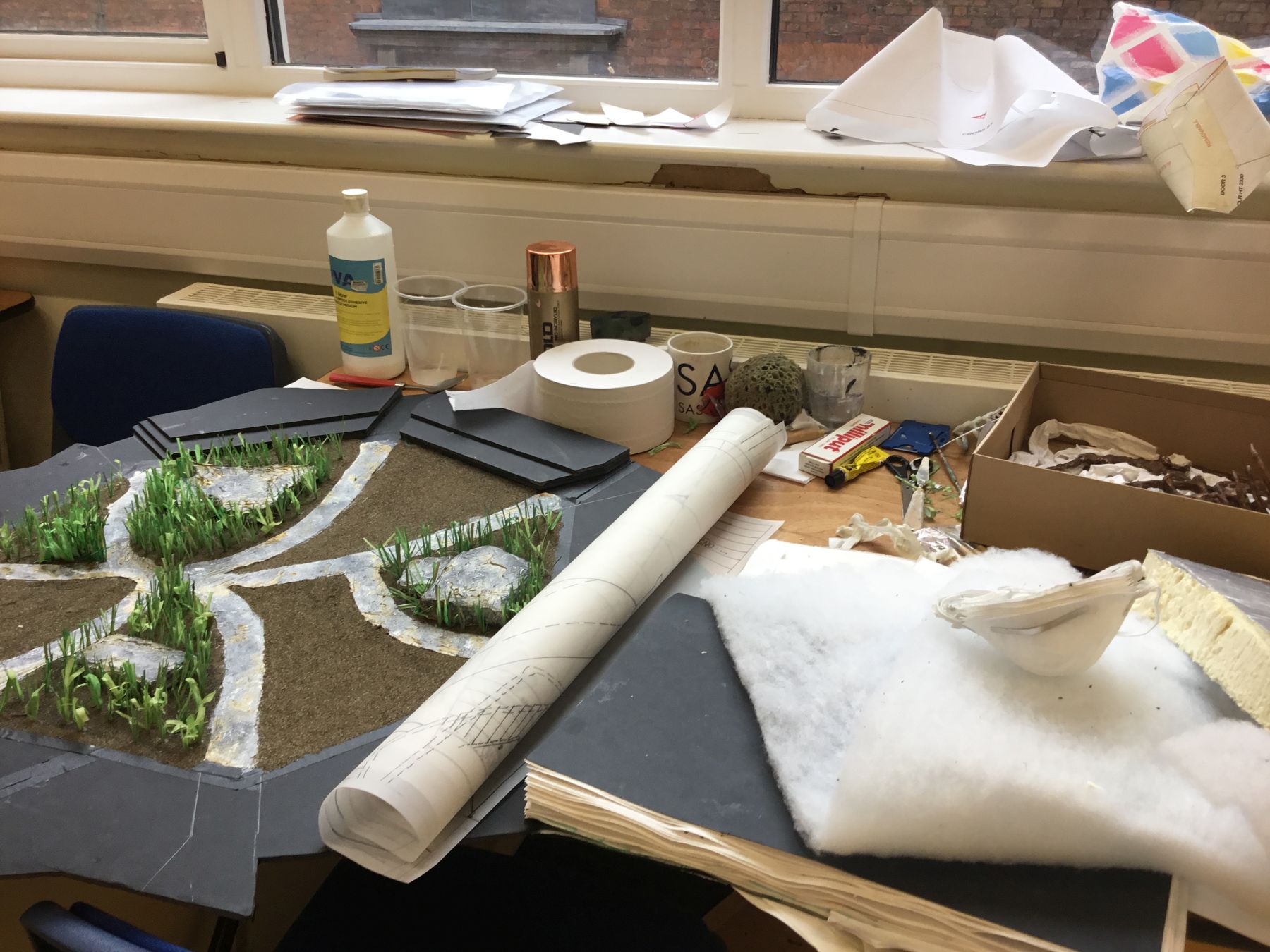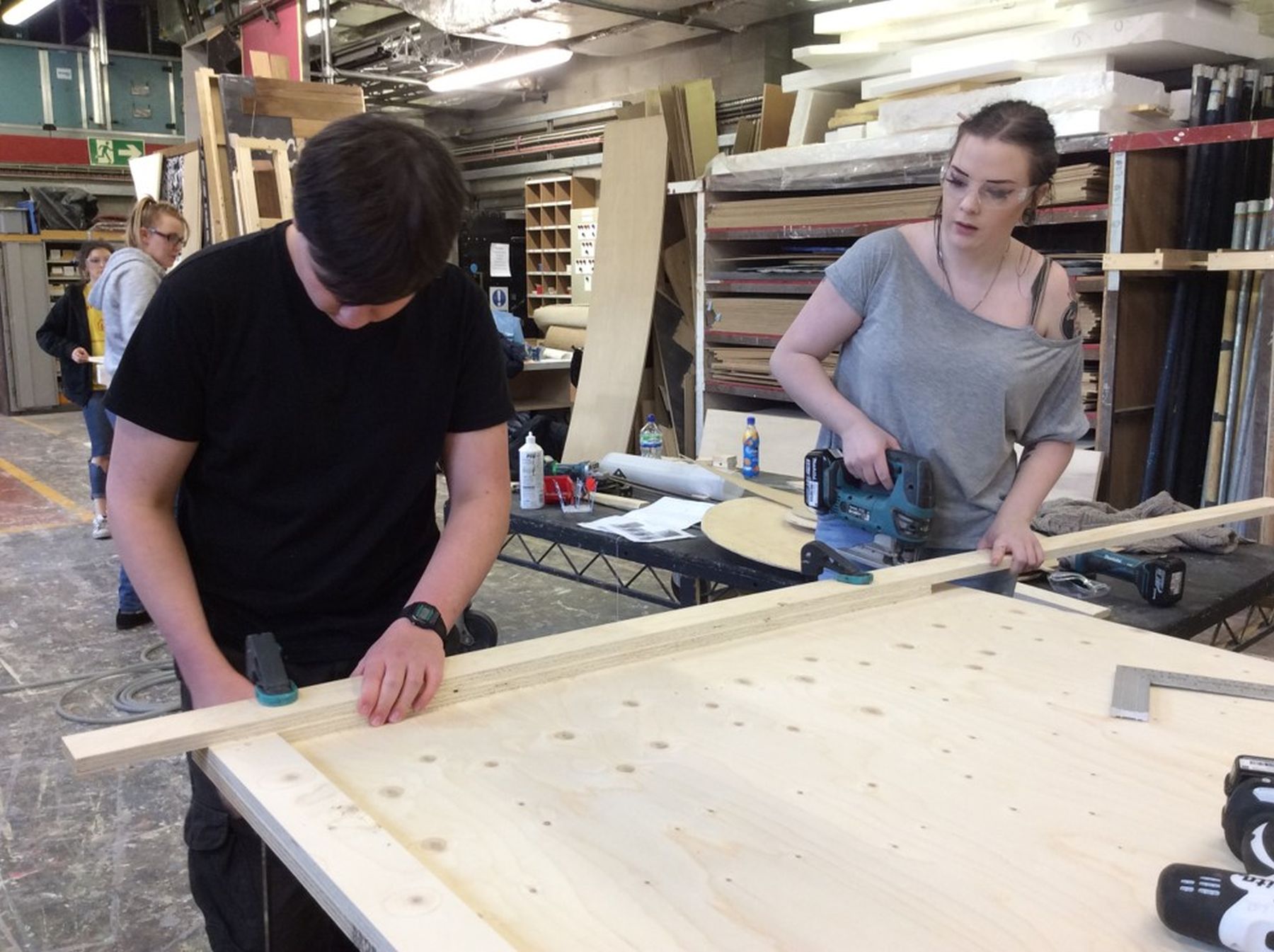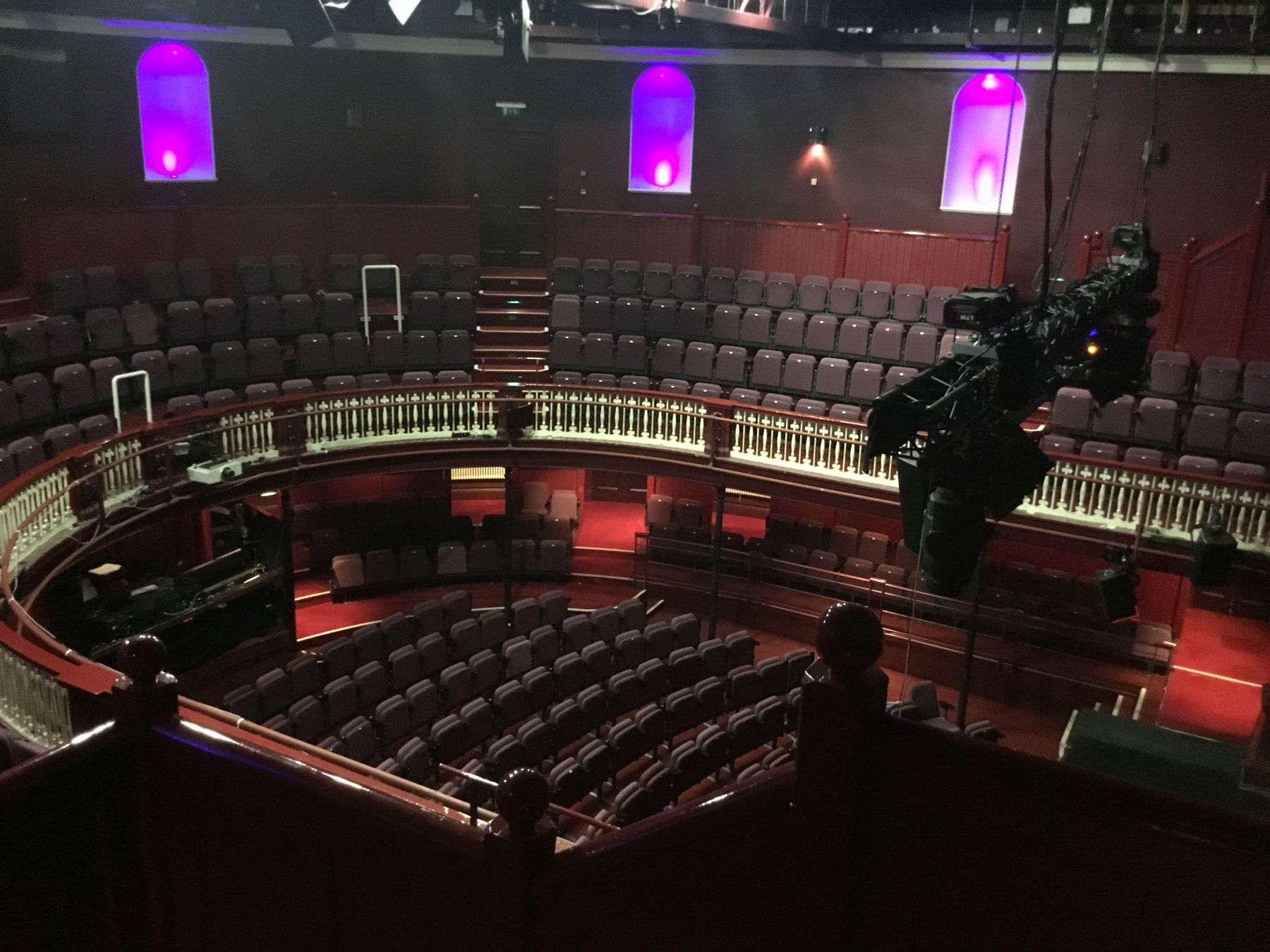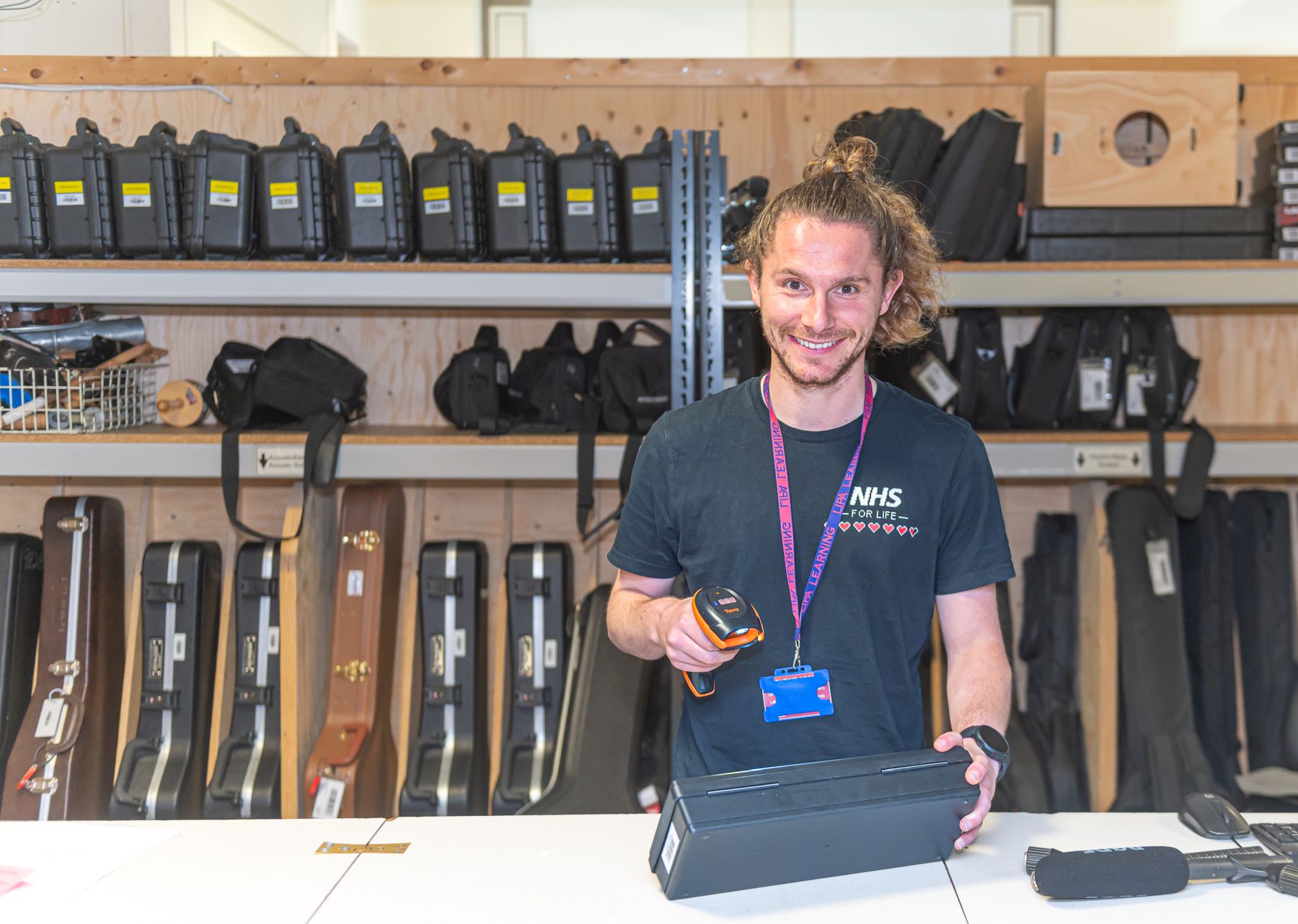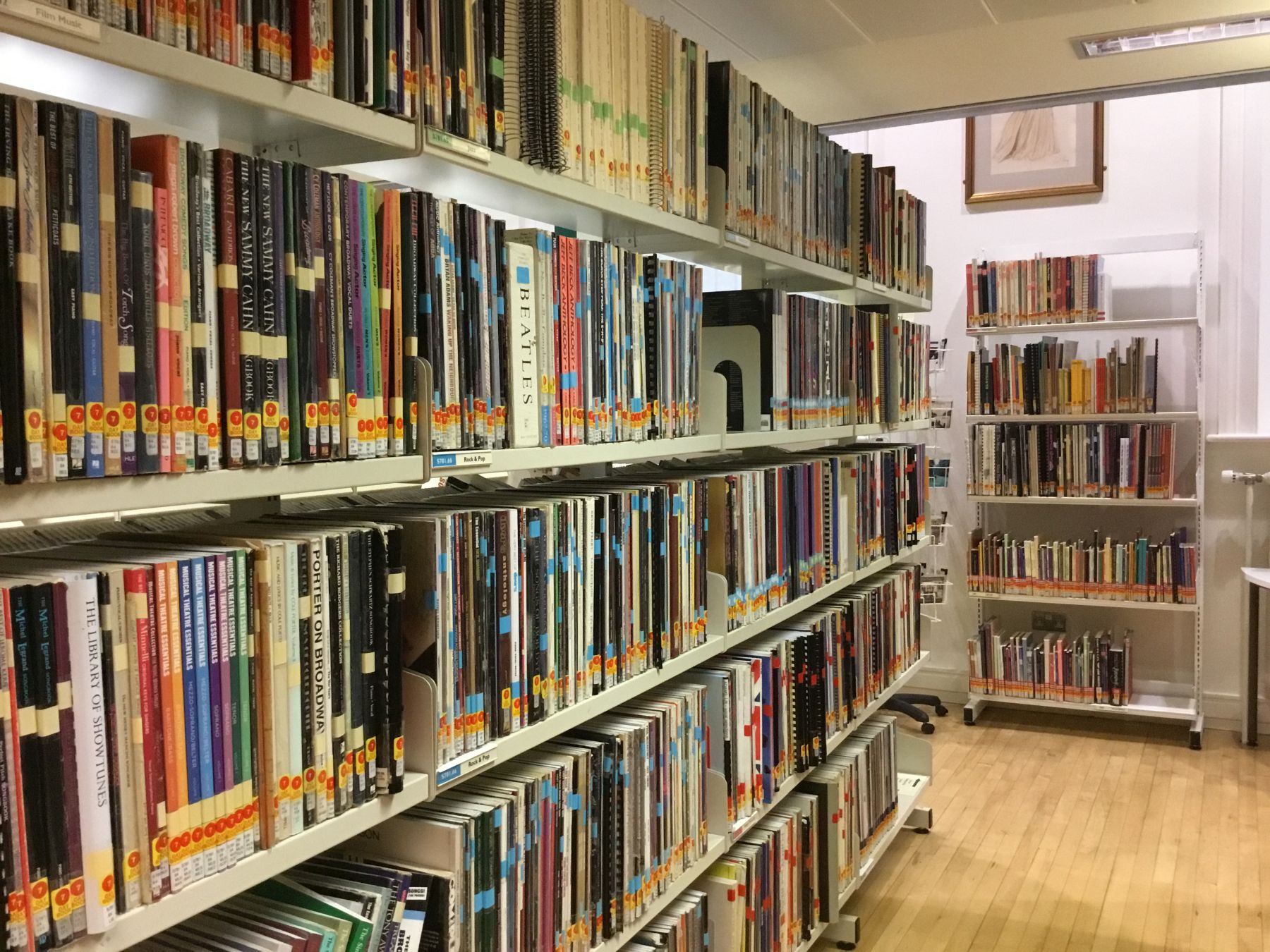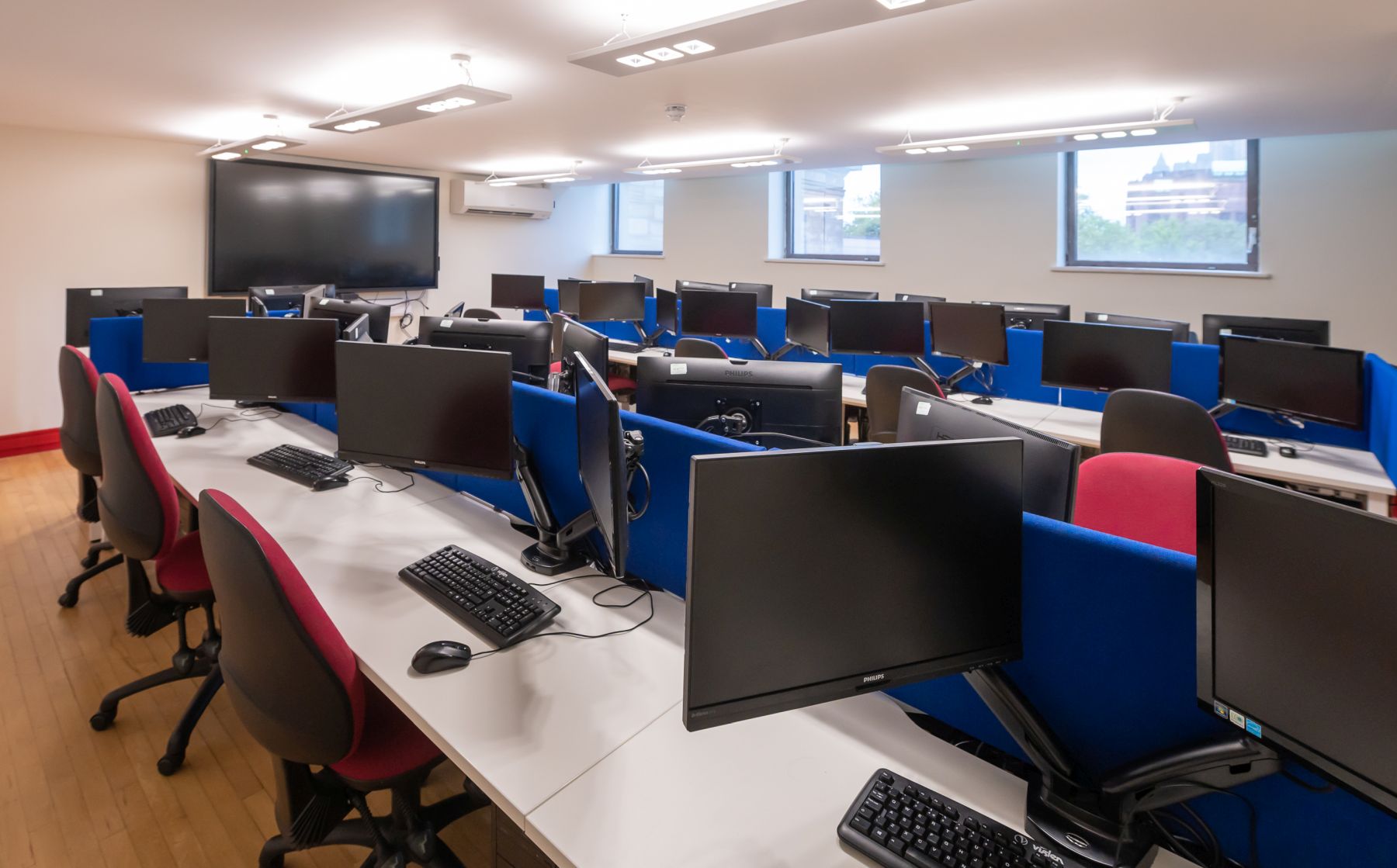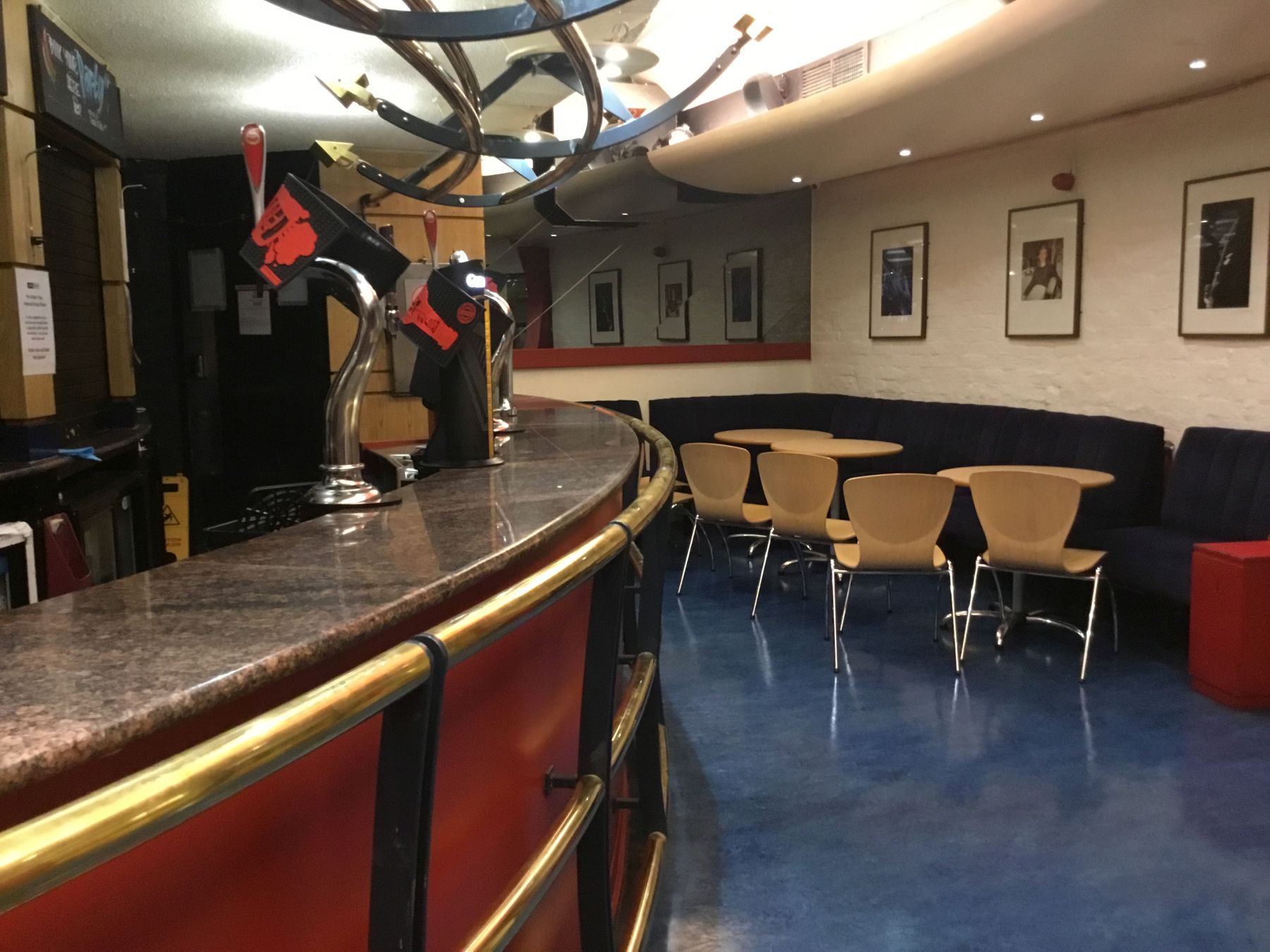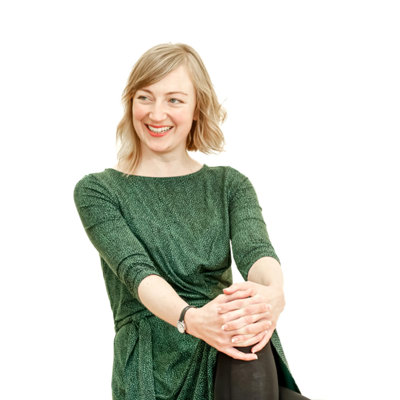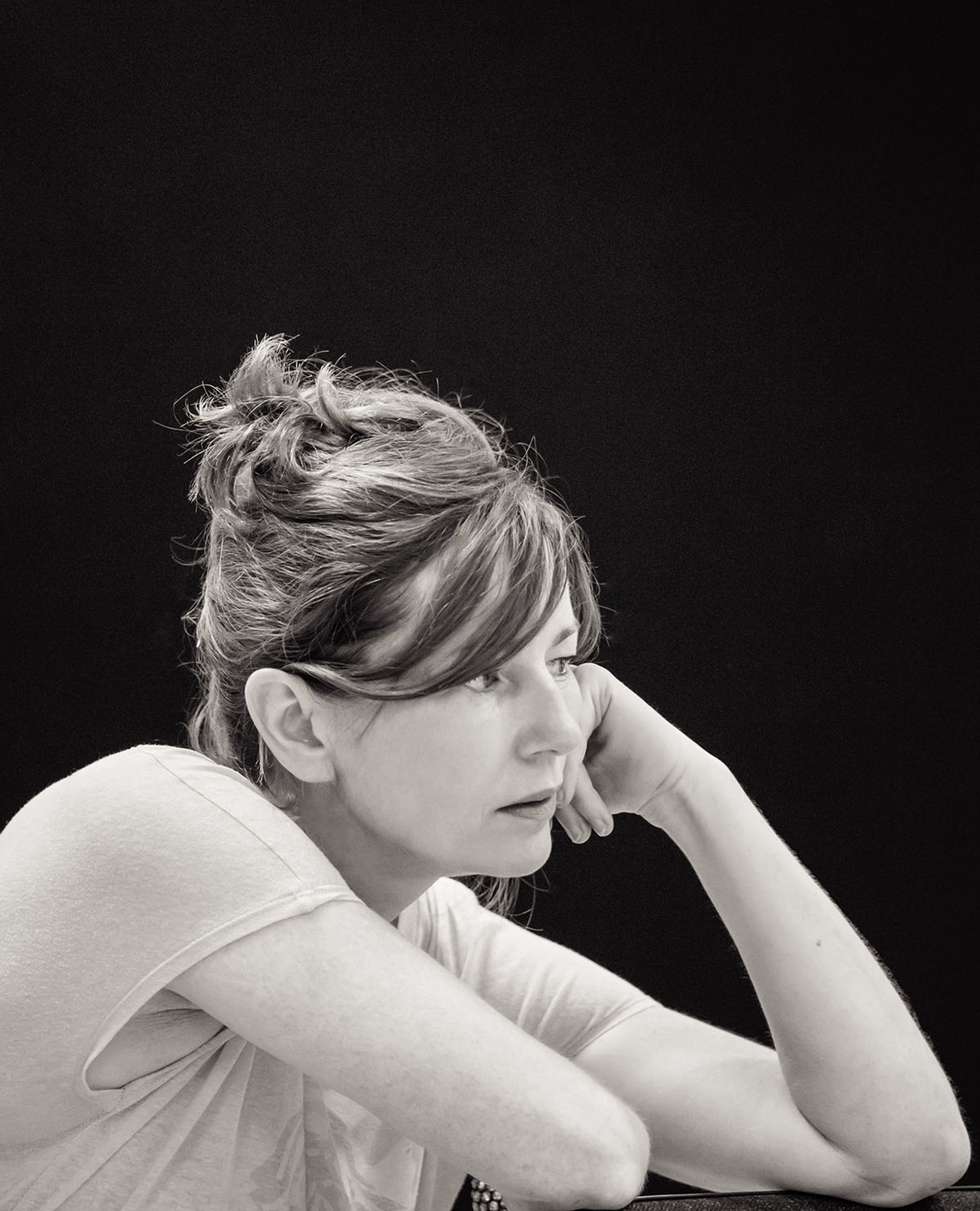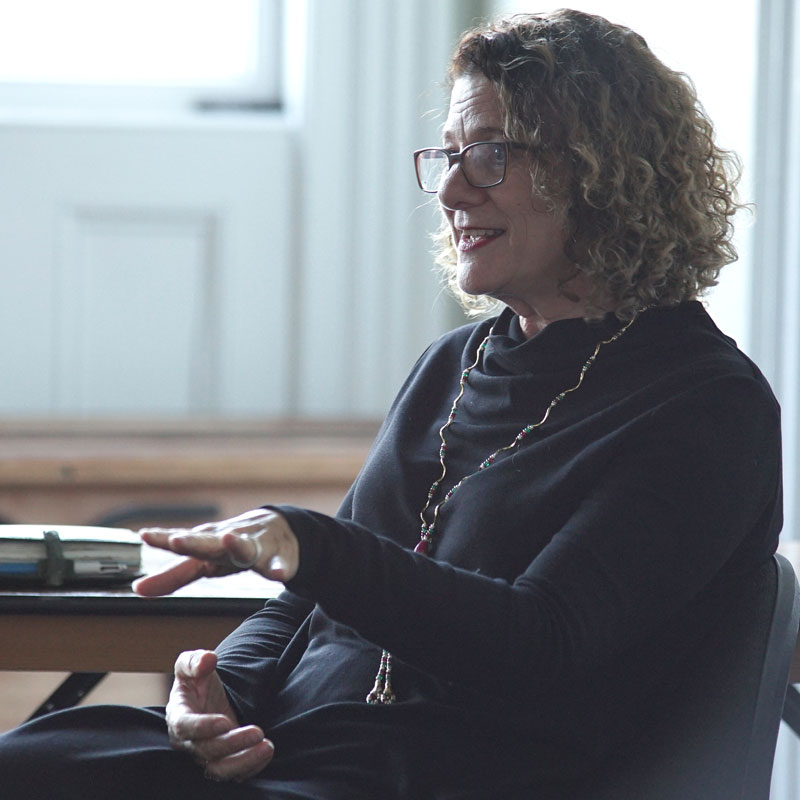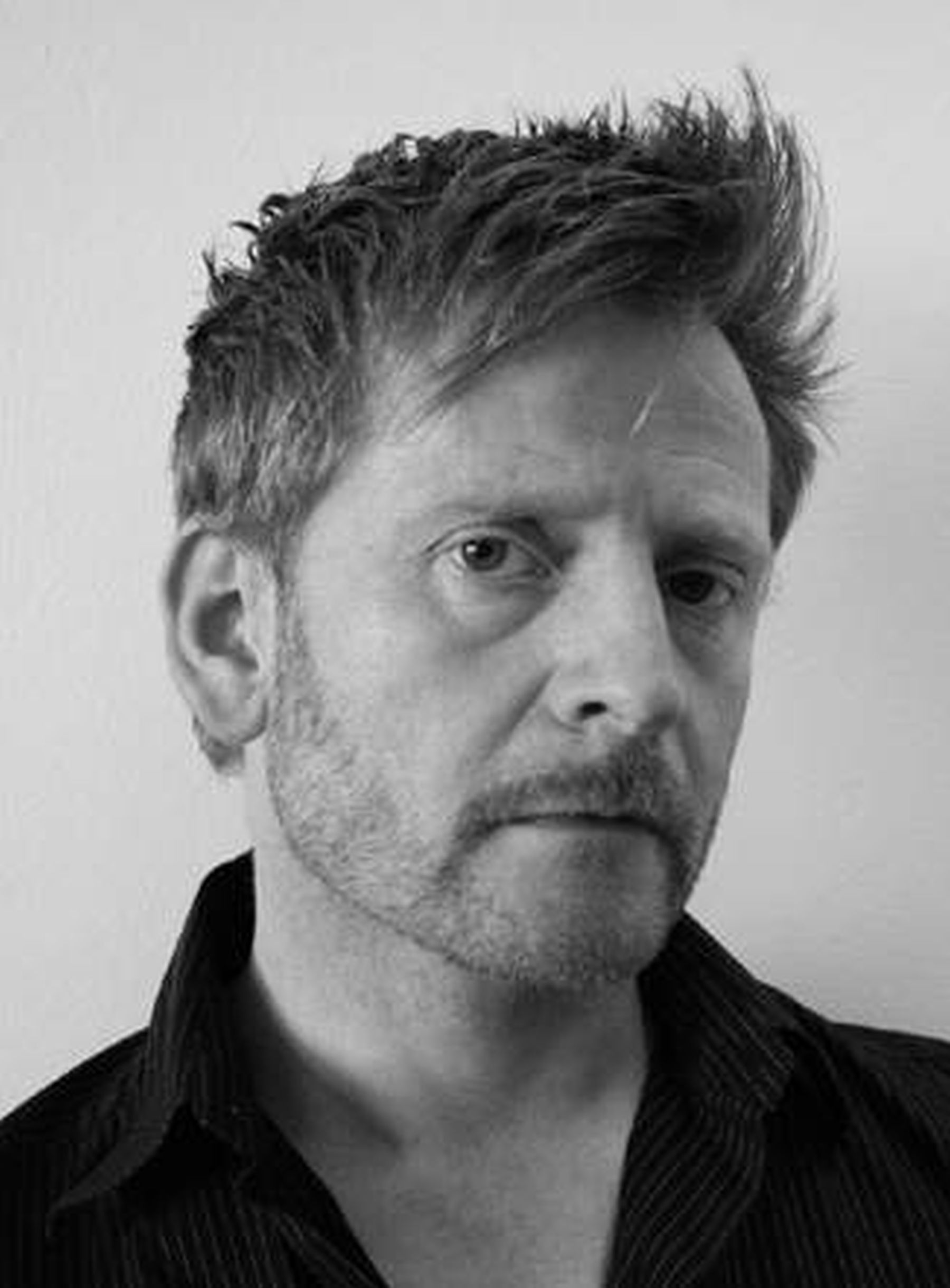Course
Overview
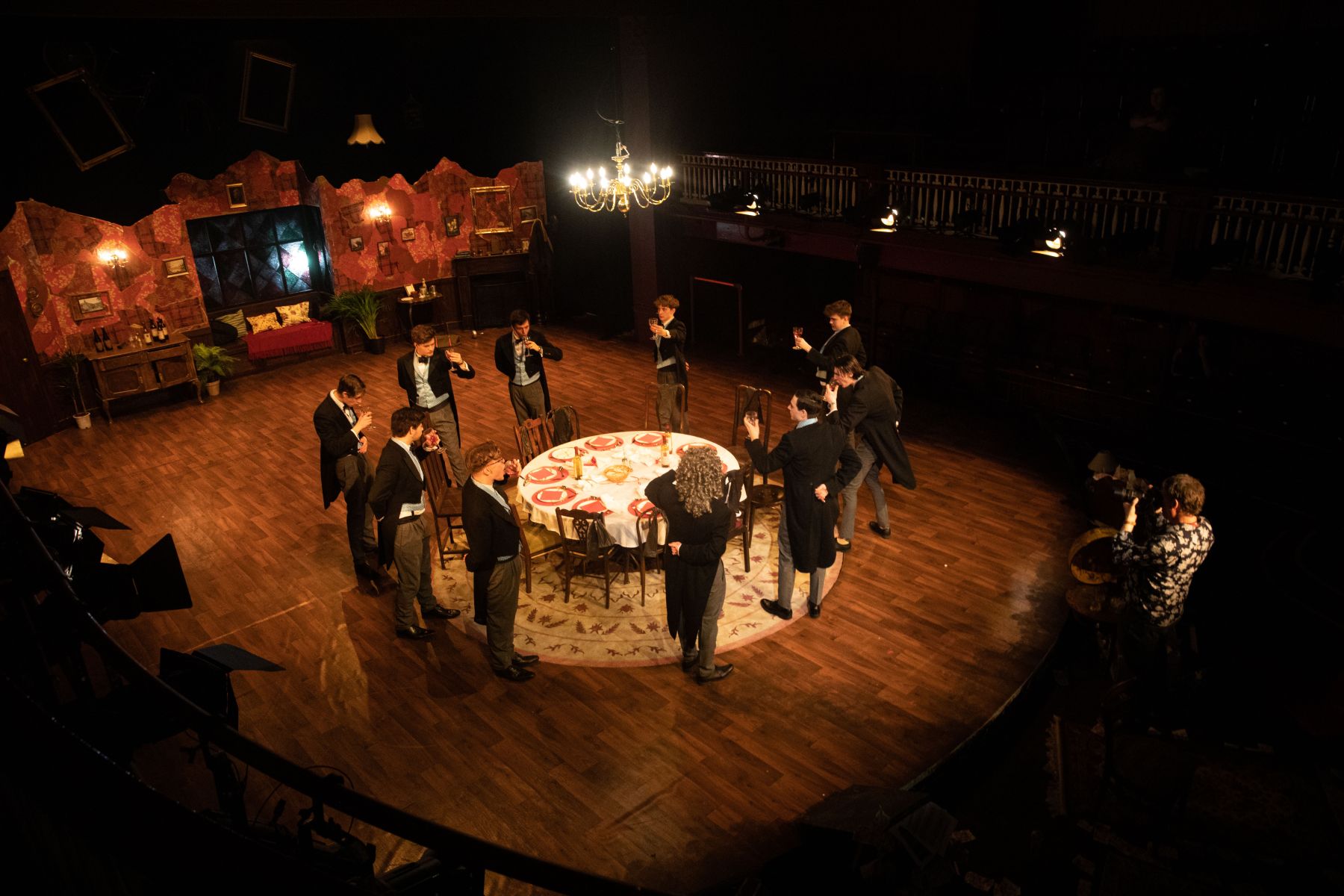
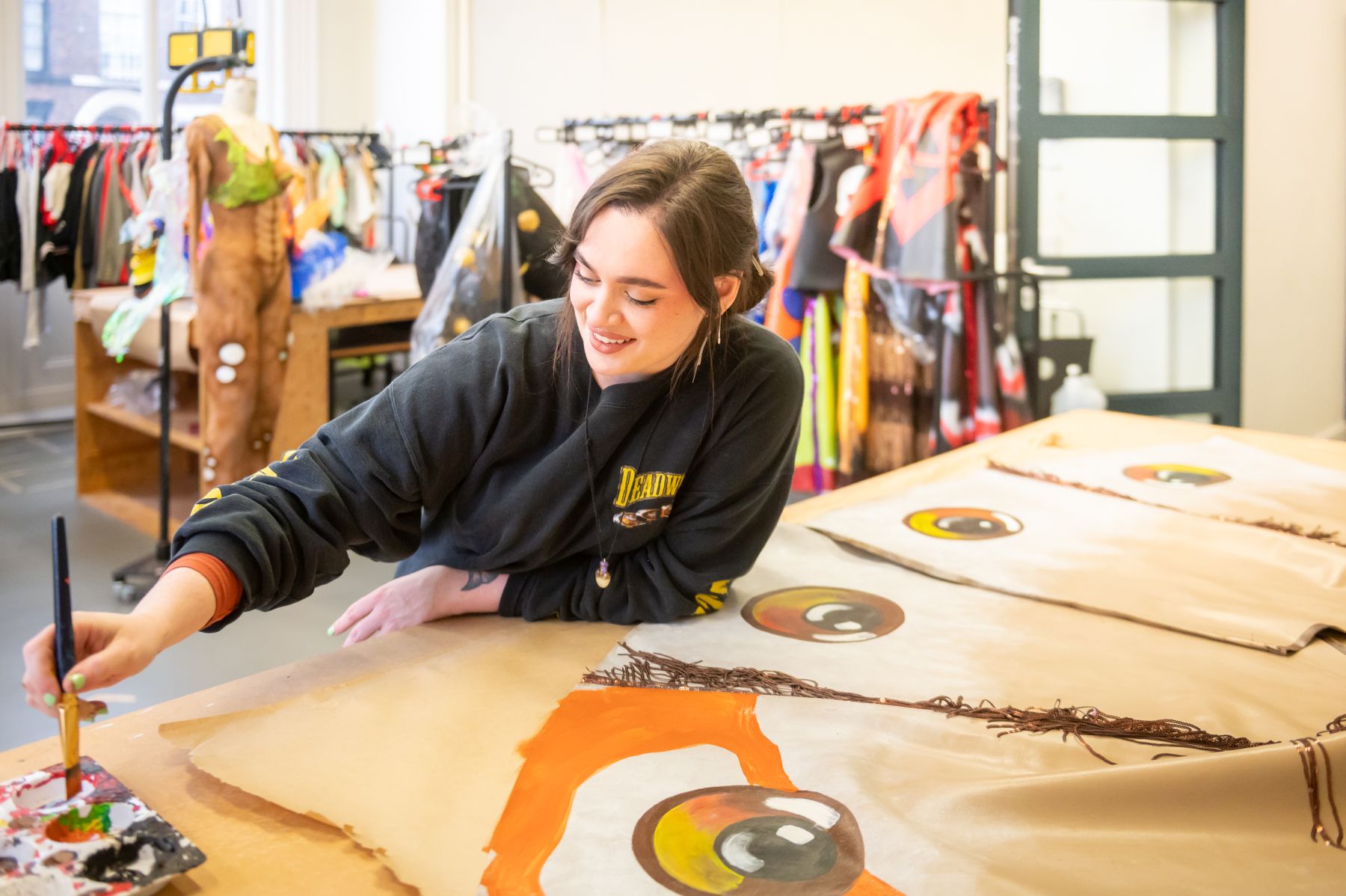
You will develop the practical skills, creativity and experience needed to work as a designer for performance across live, digital, and multimedia productions and installations.
We equip you with a range of essential skills for set and costume design, including model making, technical drawing, prop making, and fabrication for performance. As the course progresses, you will specialise and experiment in the areas that inspire you most.
You will benefit from working with industry practitioners and other students on our extensive programme of public performances. These performances enable you to build an extraordinary portfolio of fully realised - not hypothetical - designs.
Accredited By:

What You Will
Study
Design and Making Skills
This module develops your awareness of the importance of research in the design process and how it can be applied in relation to a finished design. A highly practical module, you are introduced to a wide range of design and costume and prop making skills. It involves individual and collaborative work and culminates with a design-led presentation/performance.
Design and Fabrication
This module introduces you to a wide range of practical design and fabrication skills needed for set design and creation. You also develop a firm knowledge and understanding of the design and fabrication processes associated with performance, exhibition, installation, and live events. A practical project, in collaboration with first year Theatre and Production Technology students, enables you to experience the complete production process, from concept to realisation.
Production Process
This highly practical module gives you the opportunity to work on a LIPA production or productions in the areas of set and costume realisation. It enables you to develop a keen sense of what it takes to get a show on, how it runs (particularly in relation to costume) and how to safely dispose/salvage elements in an organised and an environmentally friendly way.
Design From Text
This module provides you with the opportunity to develop and apply many of the skills acquired in the modules Design and Fabrication and Design and Making Skills, through an individual hypothetical design project. You design for a given text, for a specific space, in collaboration with a professional theatre director. This enables you to develop your understanding, knowledge and skills in set design, costume design, technical drawing, and lighting design in a production context.
Research Project 1
This module is designed to ensure you can place your work and the work of others in both a broad socio-cultural context and within the context of the theories and practice of your own practical discipline. You develop your understanding by taking part in debates and seminars, extending your cultural reference points and developing vocational critical analytical skills.
Making and Design Practice A (Option)
Depending on what you would prefer to focus on, you choose between Making and Design Practice A and Making and Design Practice B. In Making and Design Practice A you have an opportunity to develop and refine the design and making skills you acquired in your first year by working on a practical project. The project is designed to suit the group or individual’s need but includes at least one of costume construction/deconstruction, costume props, live art, puppetry and scenic art. Throughout you experiment with new ways of working and are introduced to areas of specialist study.
Making and Design Practice B (Option)
Depending on what you would prefer to focus on, you choose between Making and Design Practice A and Making and Design Practice B. In Making and Design Practice B you have an opportunity to develop and refine the design and making skills you acquired in your first year, with an emphasis on advanced making skills, by working on a practical project. The project is designed to suit the group or individual’s need but includes at least one of costume construction/deconstruction, costume props, live art, puppetry and scenic art. Throughout you are encouraged experiment with new ways of working and are introduced to areas of specialist study.
Hypothetical Design Project
This module enables you to develop and advance the skills you learnt in your first year Design from Text module by working on two contrasting hypothetical projects. One is a text based in collaboration with a director and one is independent. With both, there is an emphasis on the development and presentation of innovative ideas.
The Assistant Designer
This module enables you to gain a greater understanding of the role of a designer by working as an assistant to a third-year designer on a LIPA or external production. You are part of the design process from conception to get-out. This module prepares you for taking on the role of designer in your third year.
Industry Placement
This module is a chance for you to gain industry experience in your chosen field of work. Guided by the module leader, you research suitable placements within the performance, design and production industries before selecting and securing your own placement. This module enables you to increase your understanding of industry practices, develop your CV and employability while expanding your professional network.
Research Project 2
This module further expands and deepens your awareness of cultural context by understanding how the performing arts are influenced by the social and political environment in which they operate. Through a series of lectures, masterclasses, field visits and research study you develop an appreciation of key theatre practitioners, directions, genres and national and local contemporary cultural, social and political issues in related areas of study.
The Designer
In this module you undertake at least two senior production roles on a LIPA public season production, an external production or an independent project which reflects your own career aspirations. This enables you to apply your specialist skills to realise a production or project in full, strengthening your self-management skills and working practices as you experience simulated industry practice.
Portfolio and Professional Career
In this module you consider your personal and professional skills and strengths as you prepare for your career. You cover management and financial skills, including tax self-assessment, indemnity and public liability insurances, unions and organisations. You identify and complete a professional development activity to support your personal career plan. The module culminates in the creation of a professional portfolio.
Research Informed Practice
This module builds on the research projects of your first and second years and offers you the chance to undertake research that includes practical work. This area of practice-led research can be of your choosing and relevant to your professional needs, aspirations and interests. You create a piece of practice as research, critically reflecting on and analysing your findings as you present your conclusions.
How You Will
Study
-
Lectures
-
Tutorials
-
Seminars
-
Workshops
-
Practical Productions
-
Independent Study
-
Group Work
-
Masterclasses
How You Will Be
Assessed
You are continually assessed on your practical work and contribution to projects – both on your working process and your realised design. There is written work in the form of evaluations of your practical work and a final research project at the end of your third year when you explore an area of your choice.
Practical/written work ratio
80% practical work / 20% written assignments

Sheryl-Lynne Valensky
Head of Theatre and Performance Design and Production Technology
Sheryl-Lynne has over 20 years of experience in stage management. Specialising in Musical Theatre and Circus she worked for Cirque Du Soleil for 10 years as artistic director, assistant artistic director and general stage manager, touring internationally with five shows. Sheryl-Lynne's other stage management credits include Disney Presents The Lion King and Phantom of The Opera, both in Toronto as well as numerous music and award ceremonies both live and broadcast. An experienced educator, she has previously worked at Guildford School of Acting and East 15 Acting School.
Sheryl-Lynne teaches the roles of stage manager, deputy stage manager and assistant stage manager. As Head of Department, she works closely with production teams to help ensure the quality of shows and performances is maintained and that it is the students who are driving the production process.
Sheryl-Lynne's extensive and varied experience enables her to bring a unique perspective to her teaching, highlighting to students how they too can create their own individual career path that matches their passions and strengths. Her international work means she is well equipped to give insights into practice outside the UK and highlight global opportunities.
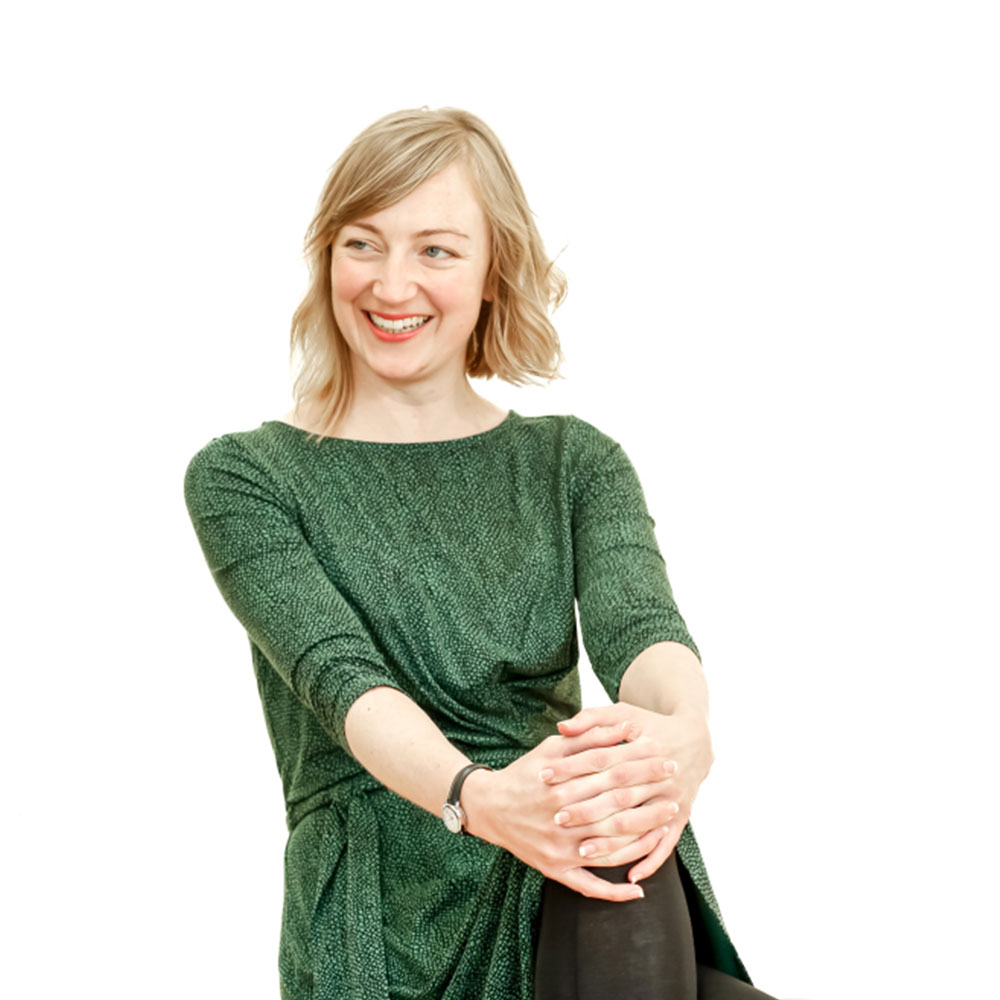
Lois Maskell
Programme Leader: Theatre & Performance Design
Lois has been shortlisted for the Linbury Prize for Stage Design and was a finalist in the BBC Design Vision competition. Recent collaborations as a set and costume designer include Action Transport Theatre, 20 Stories High, Royal Exchange in Manchester and the BBC comedy series The Mighty Boosh. In 2012, her site-specific designs for renowned company dreamthinkspeak were selected to represent UK design for performance in an exhibition at the V&A Museum in London. She believes that giving students the freedom to learn is essential for them to develop new skills. Her continued professional practice ensures her teaching is current and reflects industry standards.

Paul Halgarth
Programme Leader: Theatre & Performance Technology
Paul has worked as a freelance lighting designer, re-lighter, lighting control programmer and production electrician. He has worked for the Crucible Theatre, Sheffield and West Yorkshire Playhouse, Leeds on drama, musical and dance productions, as well as co-productions with Birmingham Rep, Liverpool Everyman, Phoenix Dance Theatre and Slung Low, among many others. He exhibited a lighting design for Flight Paths at the exhibition, Make: Believe in 2015. Paul’s experience with some of the industry’s leading lighting designers and creative teams on different scale events means he can impart industry-standard practices and equip students with the skills needed to work in the field.

Jamie Fitzgerald
Lecturer
Over the last 20 years Jamie has worked across almost every facet of theatre, productions, and live events. As a scenic construction and construction project management specialist, Jamie is passionate about delivering training that bridges the gap between time honoured processes and the very latest technological developments.
Jamie’s recent professional work includes, workshop managing projects for end clients such as Gucci, Rolls Royce, Puma, and Bentley. Special collection launches by Yayoi Kusama and Pharrell for Louis Vuitton. Red-carpet events for Apple TV and BBC as well as immersive experiences for Secret Cinema.
Academically Jamie holds both a BA in Contemporary Art and a PGCE in Design and Technology. Between 2016–2022 he ran the scenic construction workshops for Guildford School of Acting. Since 2020 he has been the external examiner for Royal Welsh College of Music and Drama’s foundation degrees in both Scenic Construction and Scenic Art.
For Jamie, working in theatre and live events provides the perfect vehicle for making cool stuff in a creative and collaborative environment. He aims to share this passion for his chosen industry with his students while helping them explore the many transferable skills that his specialism has to offer.
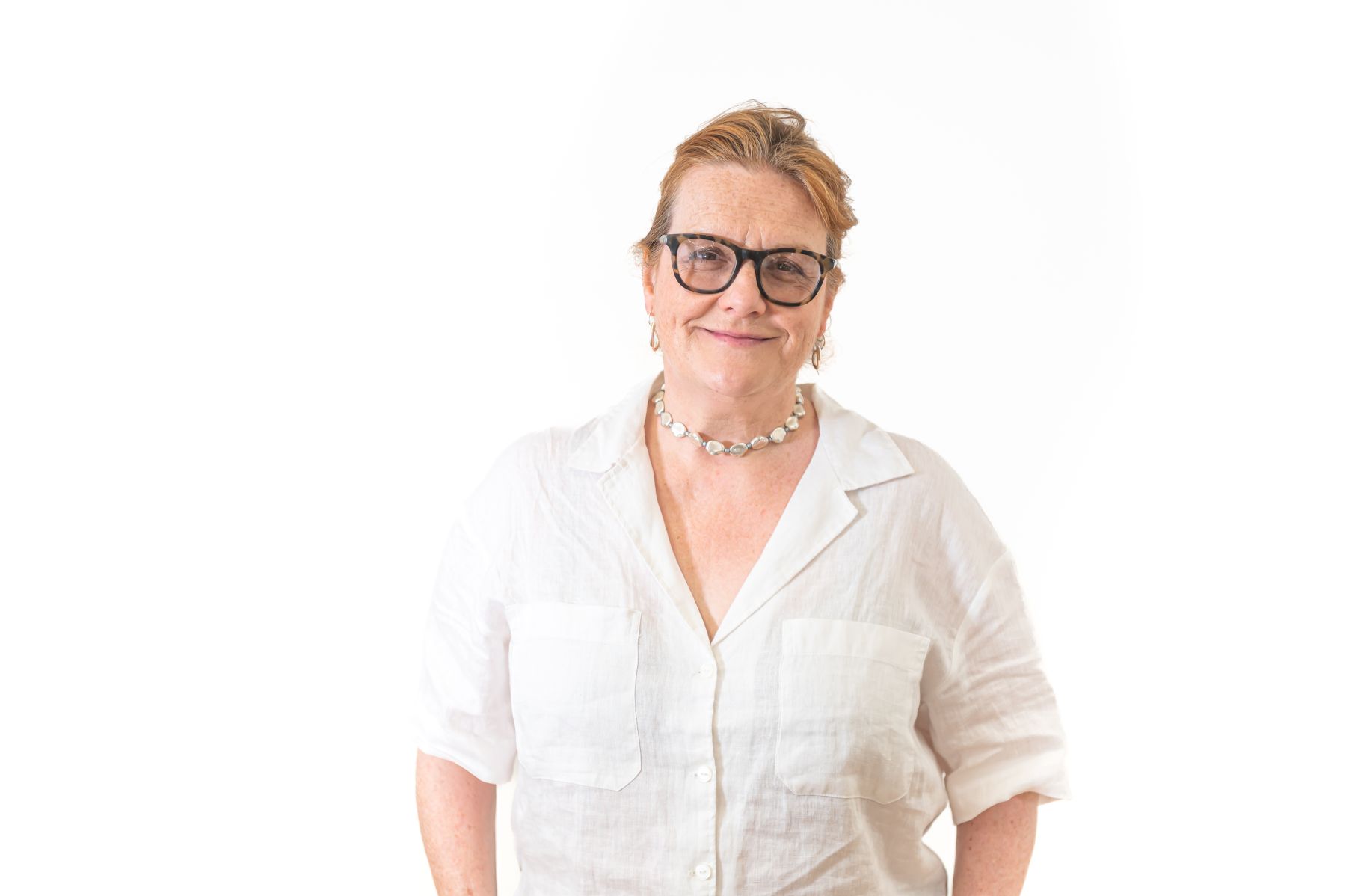
Emma Wright
Lecturer
Emma worked as a design assistant, scene painter, prop maker and production co-ordinator at a special effects creature workshop at Shepperton Studios, before becoming a production manager at the Liverpool Everyman & Playhouse. She enjoys running explorative making workshops and using her breadth of experience to mentor students on their production work, encouraging them to apply and develop their skills on varied projects. Emma feels that learning on the job is a great way to nurture practical skills, as well as a committed work ethic and collaborative skills – and hopefully have fun at the same time.
What Our
Graduates Do
Our graduates work in theatre (regional, West End, UK and international touring productions), film and TV. Their career achievements have included:
Lisa Jones (2019)
Freelance designer and maker. Dresser on The Nutcracker for Birmingham Royal Ballet, costume trainee for Netflix and Sky 1, wardrobe assistant for Welsh National Opera.
Kirsty Barlow (2018)
Finalist for The Linbury Prize in 2019. Work includes assistant set and costume designer for Sweeney Todd at the Liverpool Everyman, Seagulls at The Bolton Octagon and Ugly Bucket’s streamed performance Good Grief.
Alfie Heywood (2016)
Assistant to leading stage designer Christopher Oram on Garsington Opera’s The Turn of the Screw, Bitter Wheat, West End and Geisha for Northern Ballet.
Heledd Rees (2016)
Recent costume design credits include an immersive production of The Wolf of Wall Street in the City of London and a socially-distanced The Great Gatsby at ImmersiveLDN.
George Leigh (2016)
Winner of European Opera Prize with director Karolina Sofulak and designed Manon Lescaut for Opera Holland Park. Associate designer to Charles Edwards on productions for La Scala, Opera North and Santa Fe Opera.
Jasmine Swan (2016)
Nominated for The Stage Debut Award for Best Designer in 2018 for her debut season of work. Finalist in the Linbury Prize.
Jess Imrie (2015)
Production buyer working in TV and film. Credits include Sanditon (ITV), Silent Witness (BBC) and It’s a Sin (Channel 4).
Kathryn Nolan (2015)
Senior consultant with leading international theatre, acoustic and digital consultancy company Charcoal Blue, based in New York.
Frankie Bradshaw (2014)
Set and costume designer. She won the 2019 Stage Debut Award for Best Creative West End Debut, alongside director Lynette Linton, for Sweat at the Donmar Warehouse and Gielgud Theatre.
Grace Smart (2014)
Set and costume designer. Credits include Memoirs of an Asian Football Casual at Curve theatre, Leicester; Good Vibrations at Lyric Theatre, Belfast and Killer Joe at Trafalgar Studios, West End. Winner of the Linbury Prize 2015
Morgan Large (2003)
Award-winning West End set and costume designer
Related
News

Gallery: In Dreams exhibition

Watch: award-winning film created by LIPA students and grads

Winter/Spring season of public performances

Gallery: Term one productions 2025/26

A busy and creative Christmas for LIPA grads

LIPA secures £2.5m Office for Students capital funding to deliver new performance and digital innovation hub

Gallery: Living Portraits - The Medieval-ists

Double Win for LIPA theatre design graduates at Linbury Prize

Autumn/Winter Season of public performances

LIPA achieves major milestone: new degree awarding powers

Gallery: Graduation 2025

Sir Paul McCartney honours leading arts figures at LIPA graduation

LIPA grads and students head to Edinburgh Fringe

Gallery: The Bees

Olivier nomination for LIPA Theatre Design grad

Watch: Time-lapse of Harvest stage and set build

Watch: The making of Journey to the Moon

Gallery: Journey to the Moon exhibition

LIPA grads get creative for Christmas

Gallery: Living Portraits - The Fantastical Medieval

Gallery: Celebrating over 25 years of Performance Design at LIPA

Gallery: MA Costume Making Exhibition

LIPA shortlisted for environmental award

Gallery: Theatre designer Anne Curry’s original artwork

LIPA grads and students at Edinburgh Fringe

Gallery: Graduation 2024

Award-winning LIPA grad honoured by Sir Paul McCartney

Profile: Natalie Johnson, designer

LIPA students and graduates collaborate on new dance show
Educational qualifications are important but limited in what they can tell us about you.
Your natural ability, your fit with what and how we teach, your growth and your potential are also key factors in our admission process. We can’t evaluate these solely on your educational achievements, so no matter which course you are applying for, we look for the following attributes on your application and at the interview stage.
Additional Costs
As part of this course, there are likely to be some additional costs that are not included within your tuition fees. Many of these are optional.
Equipment
There are a number of things you will be required to have at the beginning of your course. We understand that most students have to work to a very tight budget, so we have limited the required tools to those that are absolutely essential for you to be able to start work here. We will send you a list of essentials before you enrol but items you are likely to need will include comfortable safety (steel toe cap) shoes, a tape measure, a scale ruler (1:25), craft knives, a cutting mat, a junior hacksaw and a good set of drawing pens and pencils. This initial outlay could cost around £75-£85 on average.
You may need other equipment as you progress through your studies, staff can help you decide whether/when to invest in these items (such as: dressmaking scissors, a hot glue gun and a collection of artists and scenic paint brushes).
Students seeking to invest in laptops or tablets may wish to wait until after enrolment to speak with current students and staff in identifying which device may be best for their studies and most appropriate to their budget. Software such as Vectorworks can require significant memory and processing power.
Consumable materials and project costs
One of the main costs involved in the course is on model making materials for hypothetical design projects, such as Foamboard, Mountboard, and specialist adhesives. You will be given notice ahead of this expenditure, which is normally once a year in Term 2 or 3. This cost can vary between £20-£60 per year, depending on the nature of your individual project.
At the very end of the course each Third-year designer is required to create a professional standard portfolio. This can be digital or physical. There are inevitably printing and binding costs associated with physical portfolios (£60-£100), but most people see it as an important investment for their future career. Again, this is optional, as portfolios can be submitted digitally.
Students are provided with a budget for all other assessed practical projects, the amount will vary module to module, and will be outlined as part of the project brief.
Trips and training courses
As part of the various modules on the programme, some class trips may be offered to help support your learning. Some of these will form part of the curriculum but most will be important additions to your work. Some trips may be free or subsidised, but you may be required to cover some costs yourself. There is usually a compulsory trip to Manchester in Term 1 or 2 for First-year designers, which costs somewhere around £25 -£30.
Throughout your studies there will also be opportunities to attend training courses that will help you enhance your skills and employability. These are not compulsory, but you will have to contribute towards the cost of the training courses you choose to attend. The opportunities offered vary each year, but past courses have included First Aid training and Cueing to Music.
Seeing shows
You should see live performances as often as you can. This is not compulsory, but it will help your development as a designer. Theatre visits are not covered by your tuition fees, so you’ll need to cover these costs yourself. Most theatres offer student discounts for tickets (becoming a member of YEP means you have access to cheap tickets at the Liverpool Everyman and Playhouse Theatres) and we are occasionally offered a limited number of free or discounted tickets for shows in the city. We also encourage you to see all LIPA shows. We offer discounted student tickets to make this as affordable as possible. Every year we organise optional trips to theatres in Manchester. In these cases, ticket costs and travel need to be met by each individual.
Cost of living
Wherever you choose to study, you'll have to budget for accommodation and other everyday living expenses, such as food and bills.
Accommodation costs are relatively low in Liverpool, particularly compared to the south east of England, and the city's shops and entertainment venues also have lots of student discounts.
We’d recommend completing a simple budget plan to predict your income and outgoings. This should include accommodation, bills, insurance, TV licence, food, laundry, clothes, books, travel and socialising. How much you'll want to spend on a lot of these is completely personal.
There is lots of advice available online about budgeting:
- UCAS budget calculator is a great tool to help you balance your in-comings and out-goings.
- SaveTheStudent provides useful information on student money resources, including loans, budgeting, and scholarship sources.
Most UK students will be able to take out a maintenance loan to assist with living costs and there are some grants available. We also offer some bursaries. To find out more, please see Student Finance and bursaries.
Because our courses are intensive and we have a busy season of student performances, options for part-time work during our teaching periods can be limited. However, many of our students gain flexible part-time work, in performance venues, shops, restaurants and bars. We also provide casual work opportunities for our students ranging from stewarding work on our productions to working with young people to help us widen access to our courses. The long summer break is when many of our students choose to work.
Additional Costs
As part of this course, there are likely to be some additional costs that are not included within your tuition fees. Many of these are optional.
Equipment
There are a number of things you will be required to have at the beginning of your course. We understand that most students have to work to a very tight budget, so we have limited the required tools to those that are absolutely essential for you to be able to start work here. We will send you a list of essentials before you enrol but items you are likely to need will include comfortable safety (steel toe cap) shoes, a tape measure, a scale ruler (1:25), craft knives, a cutting mat, a junior hacksaw and a good set of drawing pens and pencils. This initial outlay could cost around £75-£85 on average.
You may need other equipment as you progress through your studies, staff can help you decide whether/when to invest in these items (such as: dressmaking scissors, a hot glue gun and a collection of artists and scenic paint brushes).
Students seeking to invest in laptops or tablets may wish to wait until after enrolment to speak with current students and staff in identifying which device may be best for their studies and most appropriate to their budget. Software such as Vectorworks can require significant memory and processing power.
Consumable materials and project costs
One of the main costs involved in the course is on model making materials for hypothetical design projects, such as Foamboard, Mountboard, and specialist adhesives. You will be given notice ahead of this expenditure, which is normally once a year in Term 2 or 3. This cost can vary between £20-£60 per year, depending on the nature of your individual project.
At the very end of the course each Third-year designer is required to create a professional standard portfolio. This can be digital or physical. There are inevitably printing and binding costs associated with physical portfolios (£60-£100), but most people see it as an important investment for their future career. Again, this is optional, as portfolios can be submitted digitally.
Students are provided with a budget for all other assessed practical projects, the amount will vary module to module, and will be outlined as part of the project brief.
Trips and training courses
As part of the various modules on the programme, some class trips may be offered to help support your learning. Some of these will form part of the curriculum but most will be important additions to your work. Some trips may be free or subsidised, but you may be required to cover some costs yourself. There is usually a compulsory trip to Manchester in Term 1 or 2 for First-year designers, which costs somewhere around £25 -£30.
Throughout your studies there will also be opportunities to attend training courses that will help you enhance your skills and employability. These are not compulsory, but you will have to contribute towards the cost of the training courses you choose to attend. The opportunities offered vary each year, but past courses have included First Aid training and Cueing to Music.
Seeing shows
You should see live performances as often as you can. This is not compulsory, but it will help your development as a designer. Theatre visits are not covered by your tuition fees, so you’ll need to cover these costs yourself. Most theatres offer student discounts for tickets (becoming a member of YEP means you have access to cheap tickets at the Liverpool Everyman and Playhouse Theatres) and we are occasionally offered a limited number of free or discounted tickets for shows in the city. We also encourage you to see all LIPA shows. We offer discounted student tickets to make this as affordable as possible. Every year we organise optional trips to theatres in Manchester. In these cases, ticket costs and travel need to be met by each individual.
Cost of living
Wherever you choose to study, you'll have to budget for accommodation and other everyday living expenses, such as food and bills.
Accommodation costs are relatively low in Liverpool, particularly compared to the south east of England, and the city's shops and entertainment venues also have lots of student discounts
We’d recommend completing a simple budget plan to predict your income and outgoings. This should include accommodation, bills, insurance, TV licence, food, laundry, clothes, books, travel and socialising. How much you'll want to spend on a lot of these is completely personal.
There is lots of advice available online about budgeting:
- UCAS budget calculator is a great tool to help you balance your in-comings and out-goings.
- SaveTheStudent provides useful information on student money resources, including loans, budgeting, and scholarship sources.
Most UK students will be able to take out a maintenance loan to assist with living costs and there are some grants available. We also offer some bursaries. To find out more, please see Student Finance and bursaries.
Because our courses are intensive and we have a busy season of student performances, options for part-time work during our teaching periods can be limited. However, many of our students gain flexible part-time work, in performance venues, shops, restaurants and bars. We also provide casual work opportunities for our students ranging from stewarding work on our productions to working with young people to help us widen access to our courses. The long summer break is when many of our students choose to work.
Additional International student costs
UKVI English language requirements
If you are not from a majority English speaking country (as determined by UKVI), you will be required to establish to LIPA that you meet UVKI minimum standards for English language before getting a Confirmation of Acceptance for Studies (CAS) number. The CAS number we issue you allows you to begin the visa application process. There is no requirement for a student to evidence their English language qualification at the point of application, audition or interview.
Students who accept a place on Certificate of HE Foundation Acting (Musical Theatre) or Certificate of HE Foundation Acting (Stage & Screen) must sit a UKVI-approved Secure English Language Test (SELT). The cost of a SELT can range from approximately £180 - £250. You may also incur travel costs to your closest test centre.
Students who accept a place on an undergraduate or postgraduate course may have the opportunity to evidence their English language through a qualification from another country which meets LIPA’s assessment of its academic suitability, take a UKVI-approved Secure English Language Test (SELT), or completing and passing a LIPA Institutional Assessment of English. The cost of a SELT can range from approximately £180 - £250. You may also incur travel costs to your closest test centre. A LIPA Institutional Assessment of English is free of charge.
Student visa
All international students who do not hold a United Kingdom of Great Britain and Northern Ireland passport; a Republic of Ireland passport; or EU Settled Status (EUSS), will require a Student visa to study in the UK.
The Student visa application fee in 2025 was £490. Some students will need to have their biometrics taken as part of the visa application process and this may incur additional costs, notably travel costs to your nearest Visa Application Centre.
In addition to the application fee, you are required to pay the Immigration Health Surcharge, which gives you access to the UK’s National Health Service (NHS). Once your course starts, any medical treatment you require in the UK will be free of any further charges if you use the NHS, just as it is for UK nationals. The surcharge is compulsory, even if you hold private healthcare insurance. 2025 surcharge costs were as follows:
- Foundation and Certificate of HE programmes: £776
- Undergraduate (BA) programmes: £2,716
- Postgraduate (MA) programmes: £1,164
The surcharge will give access to NHS healthcare services from your arrival in the UK until the date your visa expires.
Accommodation
Some accommodation providers may require international students to pay a larger deposit, or pay for their accommodation in fewer, larger instalments. This is something individual students will need to discuss with their accommodation provider.
View the programme specification on LIPA's course catalogue






